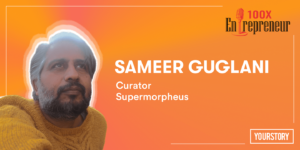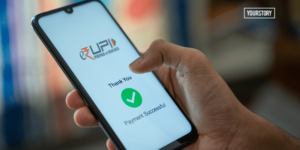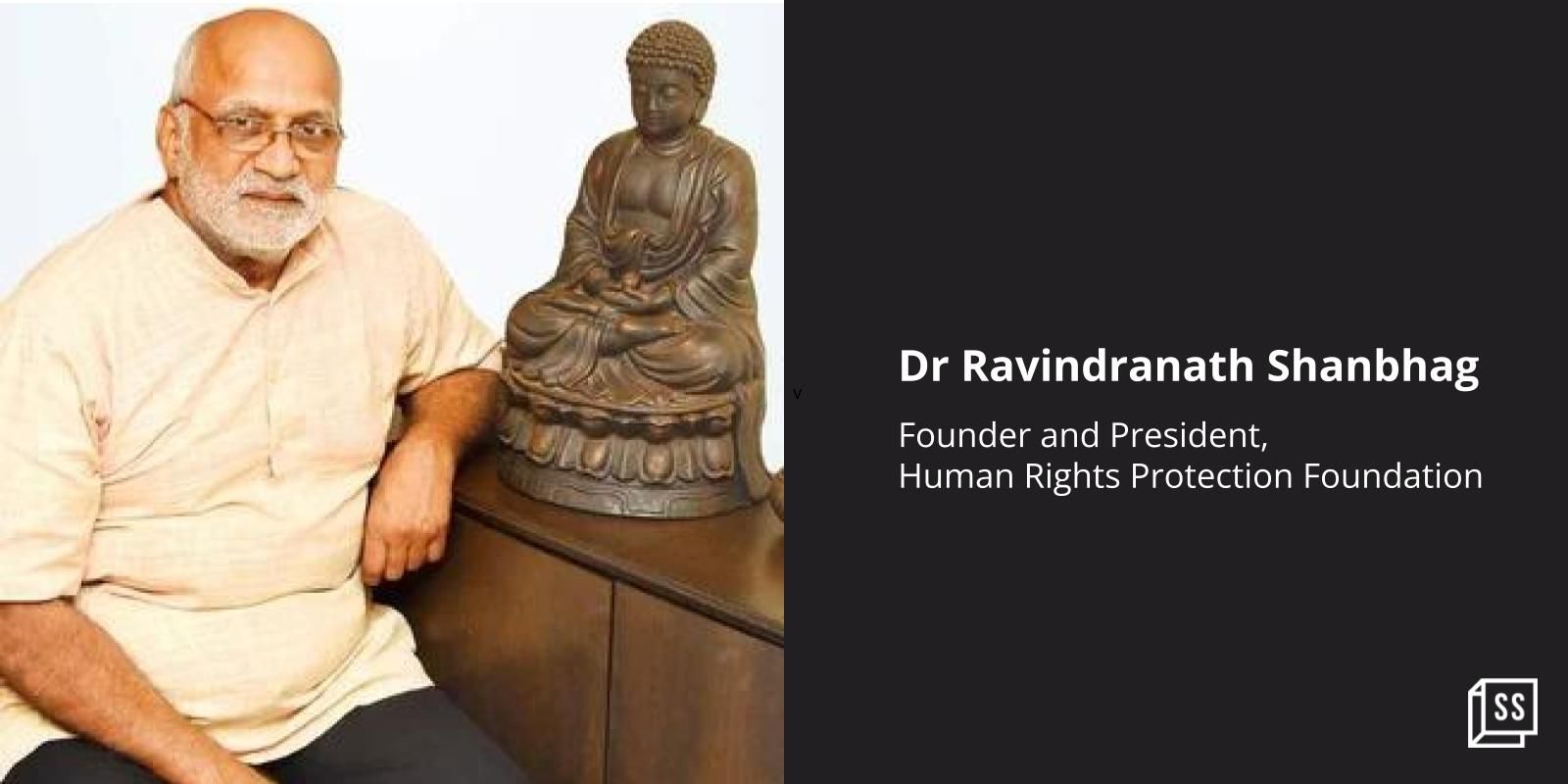
I was 19 when I first met Dr Ravindranath Shanbhag in a small office in a law college in Udupi, Karnataka. His desk was overwhelmed with a mountain of countless papers and documents.
Behind the desk was a sizable cupboard that was filled with stacks of paperwork. Little did I know, this small room held the stories of those seeking justice. The air carried a sense of anticipation and anxiety as numerous people awaited their turn to discuss their matters with Dr Shanbhag.
Dr Ravindranath Shanbhag is a former professor of pharmacology-turned activist, and Founder and President of Consumer Forum Basrur and Human Rights Protection Foundation, Udupi.
Like many human rights activists, the 75-year-old wanted to reform the judicial system and address injustices faced by minority communities. However, he did not wait for progress to knock on his door.
It all began while Dr Shanbhag was imprisoned in a jail in Mangaluru, Karnataka, during the 1975 Emergency, which he calls “draconian”. He observed that the convicts were being exploited by the jail authorities, and interviewed prisoners to understand the root causes of their actions.
“During my time in prison, there were 600 political prisoners opposing the Emergency in India. I was one of them. With widespread reports of human rights violations within various Indian jails, I felt the need to protect the underprivileged and institute an issue-based movement with non-violent methodologies,” he explains.
In 1992, he founded the Human Rights Protection Foundation to offer assistance against any form of injustice—irrespective of its nature, the social status of the victim, or the party responsible for it. Moreover, in order to provide guidance to those in need, he enrolled himself in a law institute.
<figure class="image embed" contenteditable="false" data-id="535310" data-url="https://images.yourstory.com/cs/2/fe056c90507811eea8de27f99b086345/workshop-AR0qPKv9DNI4wzGV-1705156054698.jpg" data-alt="Dr Ravindranath Shanbhag, Human Rights Protection Foundation," data-caption="
Dr Shanbhag hosting a workshop in the initial days of the foundation
” align=”center”> Dr Shanbhag hosting a workshop in the initial days of the foundation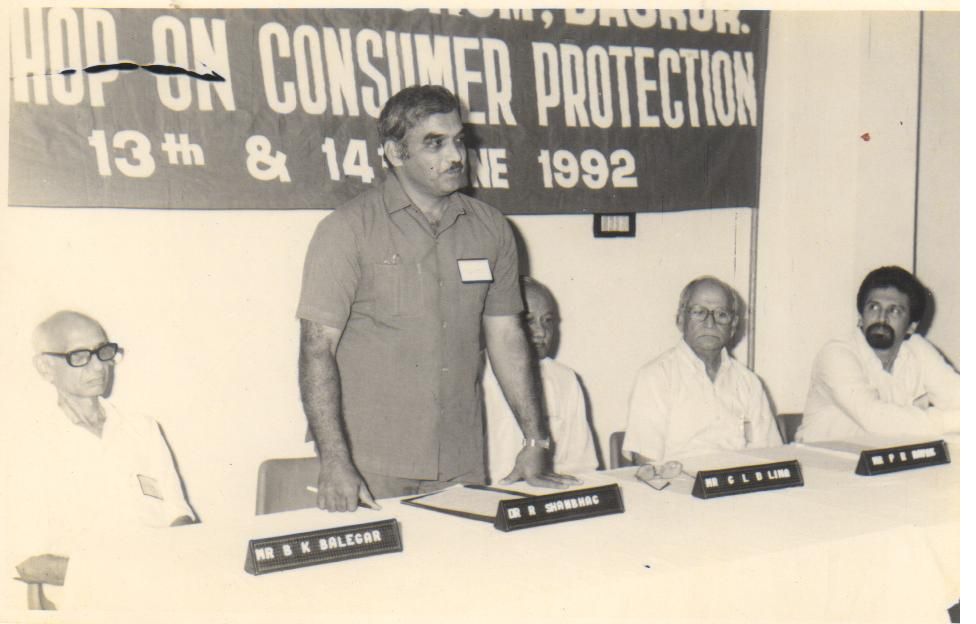
After speaking to 300 activists around India, it took Dr Shanbhag five years to create a legal framework with principles that could withstand any legal situation.
“During the Emergency, fundamental rights were suspended, and those speaking against them were imprisoned. However, seminars on fundamental rights, Directive Principles of the Constitution, the Constitution of India, and various political theories were taking place. Even though these rights were denied outside the jail, inside, the same discussions thrived,” he notes.
.thumbnailWrapper
width:6.62rem !important;
.alsoReadTitleImage
min-width: 81px !important;
min-height: 81px !important;
.alsoReadMainTitleText
font-size: 14px !important;
line-height: 20px !important;
.alsoReadHeadText
font-size: 24px !important;
line-height: 20px !important;
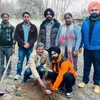
Akku-Leela vs Karnataka
In the small town of Akshaypur, Karnataka, Akku and Leela, both employees at a government-owned teachers’ training school, faced an uphill battle throughout their 42 years of service. Their basic salary of Rs 15 per month remained unchanged despite pleas to the education department officials and representatives. Frustrated by the lack of response, they reached out to the foundation for assistance.
In 2003, the Karnataka Administrative Tribunal ruled in their favour, ordering the payment of salaries in accordance with the Minimum Wages Act. However, the state government challenged this decision, escalating the case to the High Court and later to the Supreme Court.
<figure class="image embed" contenteditable="false" data-id="535314" data-url="https://images.yourstory.com/cs/2/fe056c90507811eea8de27f99b086345/akku-leela-2-1705157304236.jpg" data-alt="HRPF, Ravindranath Shanbhag" data-caption="
Government teachers Akku and Leela fighting for fair wages
” align=”center”> Government teachers Akku and Leela fighting for fair wages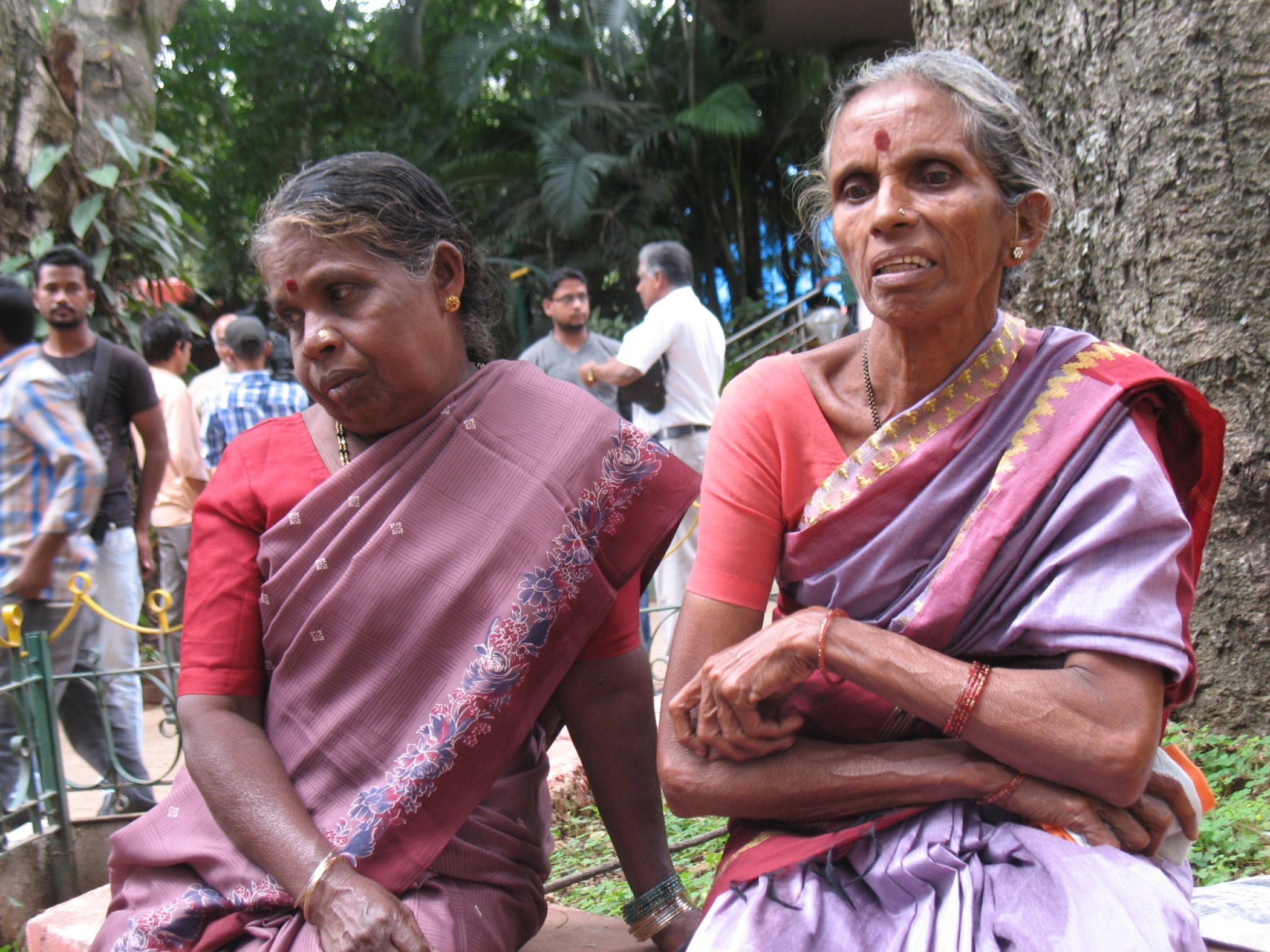
It was only when the Supreme Court ultimately sided with the two labourers, justice prevailed. As a result, each of them received a sum of Rs 27 lakh as back wages. Moreover, the organisation covered all litigation expenses, including the court fees.
“It’s not about winning or losing a case—we want to be a guiding principle,” says Dr Shanbhag.
Helping senior citizens
When 86-year-old Savithramma’s son fraudulently transferred her house without consent, the mother of eight sought help from Human Rights Protection Foundation (HRPF).
Before his death, her husband, Gururaja Bhat, gifted the house to Savithramma. Her son made her sign some documents in 2011, which she thought was for his car loan, only to discover later that he had transferred the property to his name. Even the police had dismissed her case.
<figure class="image embed" contenteditable="false" data-id="535312" data-url="https://images.yourstory.com/cs/2/fe056c90507811eea8de27f99b086345/Savithramma-1705156712567.jpg" data-alt="Dr Ravindranath Shanbhag, HRPF," data-caption="
Savithramma addressing her concerns at a workshop in 2014
” align=”center”> Savithramma addressing her concerns at a workshop in 2014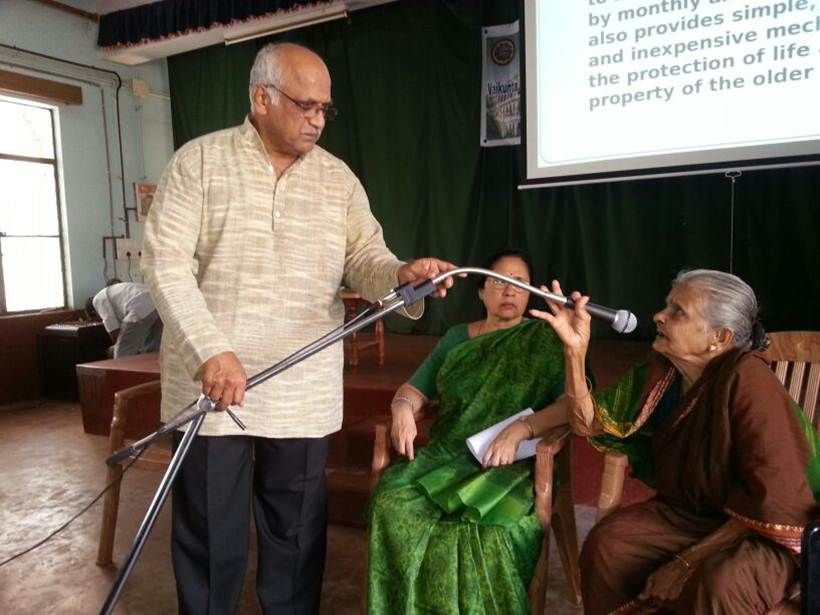
The foundation, however, found recourse in the Maintenance and Welfare of Parents and Senior Citizens Act, 2007. When the case went to the tribunal under the act, unaware of the legislation, it appointed Dr Shanbhag as a conciliation officer. Eventually, all siblings, including the son, admitted to the fraud, and the tribunal ordered the property be returned to Savithramma.
Dr Shanbhag has also been appointed as a conciliation officer by the Udupi District Senior Citizens Protection Tribunal, helping more than 700 senior citizens to solve their problems.
Spreading awareness through literature
For two decades, Dr Shanbhag published a bi-weekly newsletter titled ‘Balakedaarara Shikshana’, consisting of thousands of complaints from ordinary citizens seeking to protect their rights.
“The success stories of citizens inspired other individuals to advocate for their rights. We wanted to empower the weaker sections of Indian society such as women, children, backward castes, and marginalised communities,” he remarks.
In 1997, on the occasion of the 50th year of Indian Independence, Udayavani, a Kannada daily newspaper, invited him to contribute a weekly column titled ‘Bahujana Hithaya Bahujana Sukhaya‘, which means ‘for the sake of public good’. Additionally, Taranga, a widely circulated Kannada magazine, has published detailed articles authored by Dr Shanbhag for over 40 years.
Now, several sister organisations address different types of problems. In 1990, when complaints of atrocities on women and children surfaced, Dr Shanbhag founded Samanvaya to specifically address these issues. Also, a bi-weekly publication named ‘Saraswat Jagruthi’ was launched to empower victims of domestic violence, addressing over 600 cases and family disputes.
<figure class="image embed" contenteditable="false" data-id="535311" data-url="https://images.yourstory.com/cs/2/fe056c90507811eea8de27f99b086345/img-A853q69L0KhjzeMO-1705156575922.jpg" data-alt="Dr Ravindranath Shanbhag, HRPF," data-caption="
Dr Shanbhag met Atal Bihari Vajpayee, the then Prime Minister during his visit to Mangalore in 1999
” align=”center”> Dr Shanbhag met Atal Bihari Vajpayee, the then Prime Minister during his visit to Mangalore in 1999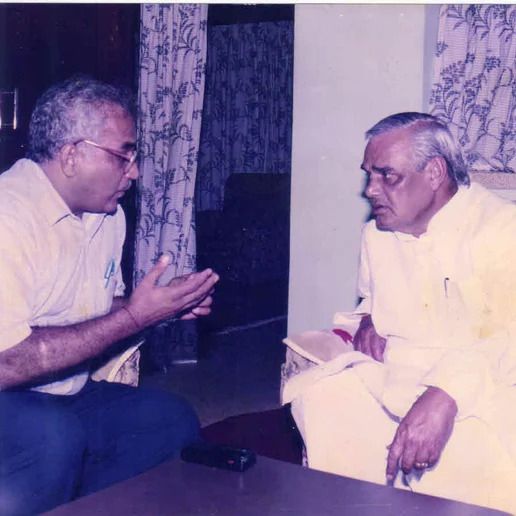
Having spent 41 years dedicated to the consumer and human rights movement, Dr Shanbhag has resolved over 38,000 citizen grievances so far, free of cost.
To raise awareness, he has conducted over 2,000 seminars across various states including Karnataka, Maharashtra, Goa, Uttar Pradesh, Bihar, Himachal Pradesh, Gujarat, Kerala, and Rajasthan. Additionally, more than 600 workshops have been organised to train advocates and future activists, ensuring the continuity of these initiatives.
“Every life has the right to defence and protection. The powerful can use wealth and political influence but attention must be given to the vulnerable, such as children, Dalits, minorities, labourers, and business owners. Inclusive protection is a must. Besides traditional legal routes, consumer cases can provide a powerful platform for justice, addressing various issues for all,” the activist notes.
<figure class="image embed" contenteditable="false" data-id="535315" data-url="https://images.yourstory.com/cs/2/fe056c90507811eea8de27f99b086345/Image67kf-1705157902467.jpg" data-alt="Willie Beatrice Barrow, Ravindranath Shanbhag," data-caption="
Dr Shanbhag with American civil rights activist Willie Beatrice Barrow in USA in 2000. Willie is known to have worked with Martin Luther King in the 1950s.
” align=”center”> Dr Shanbhag with American civil rights activist Willie Beatrice Barrow in USA in 2000. Willie is known to have worked with Martin Luther King in the 1950s. 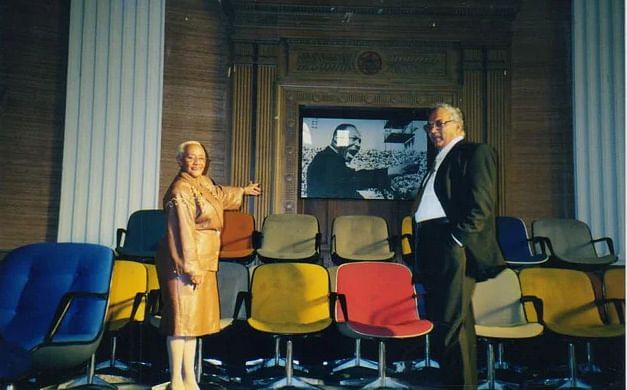
Dr Shanbhag does not consider himself an advocate as an advocate represents clients, whether they are perpetrators or victims. Instead, he guides and provides written support, and educates individuals to gain awareness.
“We solely pursue just causes, advocating for what is right without the legal challenges faced by advocates,” says Shanbhag.
Edited by Kanishk Singh



